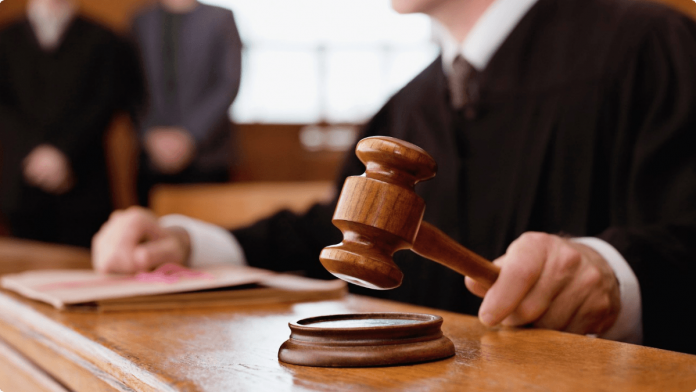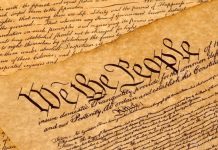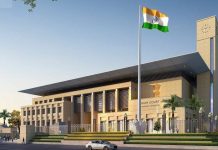This article has been written by Harshita Varshney from Faculty of Law, Aligarh Muslim University. This article deals with the provisions of discretionary powers of a judge.
Table of Contents
Introduction
Judicial Discretion is one of the important powers of the judiciary where the judges can take decisions in some matter without following any fixed rule or established law. The concept of discretionary power is an instance which shows the independence of our judiciary. It is a situation the judges goes beyond the limitations set down by legislation or against the previous judicial pronouncements. Sometimes this situation is referred to as Judicial Activism.
Constitutional provisions on the discretionary power of judges
Article 136, 139A & 142 of the Indian Constitution defines the discretionary powers which are conferred on the judges of the Supreme Court. Of these, Article 136 and 142 are important and often go together.
According to Article 136, the Supreme Court has a discretionary power to grant special leave to appeal from any judgement, decree, determination, sentence or order in any cause or matter passed by any court or tribunal in the territory of India.
Under Article 139A, the Supreme Court has a discretionary power to transfer certain cases from the High Courts when the Supreme Court is satisfied on its motion.
Article 142, of the constitution, confers discretionary power on the Supreme Court to enforce any decree or order throughout the territory of India, as it is necessary to do “complete justice” in any cause or matter pending before it.
Scope and limits
Scope of Article 136
Since Article 136 is used by the judges to grant special leave based on its discretion, it must not be arbitrary and vague. In the case of N. Suriyakala v. Mohandoss & Ors. (2007), the scope of Article 136 is discussed. The court held that “Article 136 is not an ordinary form of appeal like Section 96 & 100 of CPC. While, following the constitutional scheme, the last court where the ordinary cases are heard is the High Court. The Supreme Court is meant to deal with more serious issues like questions related to the constitution, the validity of a law, or where the grave injustice had been done. If the Supreme Court starts entertaining all kinds of cases then soon it will be having a huge amount of pending cases and will not be able to deal with more serious issues. So, this special power should be used in rare situations where grave injustice has been done”. The court in the case of Tirupati Balaji Developers Pvt. v. State Of Bihar And Ors, (2004) held that” Article 136 is an exceptional power conferred on the court by the constitution with immense trust and faith. Therefore, extra care should be observed while exercising this jurisdiction”. It has been settled that while exercising powers under Article 136, the court should not act as “ regular court of appeal” but as a “ court of equity” and “court of law” to do justice.
Article 136 deals with one of the appellate jurisdictions of the Supreme Court. The other appellate jurisdictions of the Supreme Court are dealt under Article 132 – Article 134 of the Indian Constitution. However, Article 136 is different from the other provisions because under Article 136 an appeal may lie in the following manner:
- not only against judgements, decrees, final orders, or sentences but also against any determination.
- against a decision made in any matter. Whether it may be Civil or Criminal.
- against a decision of any High Court, subordinate courts or any tribunal.
Limits of Article 136
This is true that Article 136 has a wide scope and confers discretionary power on the Supreme Court without any limitations. However, Clause (2) of Article 136 puts a restriction on the Supreme Court that it can not grant appeal against any judgement, determination, sentence or order passed by any court relating to the laws of Armed Forces.
Scope of Article 142
The functioning of the Apex Court always aims at delivering justice. It’s functioning always ensures that the decision of any court has always given justice to the parties. While keeping this objective in mind, the Supreme Court is entitled with the power contained under Article 142. According to this, the Supreme Court has the power to pass any decree or order in any matter or cause pending before it to do ‘complete justice’. It is said that Article 142 is a step ahead of the powers enshrined under Article 136. If we talk about the scope of this power of the Supreme Court, there is no defined limitation. The main purpose of this power is to do ‘complete justice’ to the parties.
In the case of Chowdhary Navin Hemabhai v. State of Gujarat (2011), the court held that which case or matter will require this power to do complete justice will depend on the facts and circumstances of the matter. However, the court has used this power prescribed under Article 142 several times in different types of cases. In the case of Sahid Balwa v. Union of India & Ors, (2013) the court held that the power prescribed under Article 142 gave more emphasis on equity rather than law so as to ensure that complete justice has been done. The object of art 142 is that if the judiciary started to remain dependent on the legislature to enforce its decree and orders then this will undermine the principle of independent judiciary and separation of powers.
Limits of Article 142
The limits of this power of the Supreme Court has been discussed under the case of Supreme Court Bar Association v. Union of India (1998). The court held that the power under Article 142 cannot be used to replace or change the law. However, it can be used to add in the existing law as to do complete justice to the parties. The court cannot bring new law by ignoring the existing laws.
Should there be a judicial review of the discretionary power of judges
Yes, there should be a judicial review of the discretionary power of judges. Since these powers are extraordinary powers which should be used sparingly. The main purpose of these powers is to do justice to the parties. But the regular use of these powers can undermine the principles of the constitution. The courts should define these discretionary powers or should lay down the conditions in which such powers should be used.
Areas where judges can exercise their discretionary power
Sometimes, it became difficult for a judge to foresee the future events of the judicial proceedings. Due to this, the judges are conferred with some discretionary powers to deliver justice to the parties. In many of the legislations, we find terms like ‘as the court deems proper’, ‘as the court otherwise directs’ which shows that the courts have some extraordinary discretionary powers. The judges can exercise these discretionary powers in civil as well as criminal proceedings. These are the following areas where a judge can exercise these discretionary powers:
- Sentencing: Generally, our penal code has provided a maximum punishment for all the offences which a court can sentence. But in many cases, the court enjoys some discretionary powers in prescribing the punishment for the offence. While doing so the judge should try to balance the proportionality between the punishment and the culpability of each kind of criminal offence. The same was held in the case of State of MP v. Munna Chaubey (2005). The judges should prescribe a reasonable term of punishment by considering the several factors related to the accused like his age and character rather than prescribing the term based on his discretion.
- Bail: In case of Bailable Offences the court does not enjoy any discretionary powers. However, in the case of non-bailable offence, the court enjoys sufficient discretionary power either to deny or to grant bail to the accused. In the case of Kalyan Chandra Sarkar v. Rajesh Ranjan @ Pappu Yadav and Anr (2004). the court held that the judges should use their power in a judicious manner while granting bail. The court has to consider various factors like the right of freedom of an individual if there is any possibility of recommissioning of the offence, the age of the accused and if the evidence has tampered.
- Injunctions: The court exercises wide discretionary powers while issuing temporary injunctions. The relief of injunction can not be claimed as a right before the court of law. It depends on the discretion of the court. The court has to decide to issue temporary injunctions in a judicious manner after considering the facts and circumstances of the cases. Injunctions can only be granted only if these three conditions are satisfied: prima facie case, the balance of satisfaction & irrecoverable loss.
What is the present situation of the discretionary power of judges in India
The judges of the Supreme Court enjoy wide discretionary powers under Article 142. And while exercising these powers the supreme court has made good to many cases. In the petition related to the Taj Mahal, the Supreme Court issues direction when the marbles of its start yellowing. The Supreme Court uses its power judicially to secure our heritage and to prevent its beauty. Similarly, there were many undertrials behind the bars for more than the specified time. The Supreme Court took the matter to its consideration and released the innocents. And there are many cases where the Supreme Court has provided relief and has done justice. But, now the Courts have gone to the extent that they can override the rules and laws made by the legislature by exercising their power under Article 142. In recent years several judgements have been passed which have undermined the principles of independent judiciary and separation of powers.
The Coal Block Allocation Case: The Supreme Court cancelled the allocation of coal blocks in 2014 which were granted in 1993 without any valid reason. The court didn’t even find that none of the grantees was guilty of any offence. This cancellation carried with them with a huge penalty. The individuals were not heard on their own stand but only their associations were heard.
Issues and challenges
The powers enshrined under Article 136 and 142 are extraordinary powers. And while keeping this in view the judges should use these powers in rare cases where there is a substantial question of law or where great injustice has been done. This power should not be used in a casual manner. It should be used to secure the interests of the large public and for the better administration of justice. One of the main issues with these discretionary powers is that there is no straight-jacket formula for its use. So, it should be ensured that no injustice has been caused and no laws of the parliament are put at the risk. It cannot overrule the substantive law. But there have been many cases where the Supreme Court has tried to have a balanced judgement.
In Damodar S. Prabhu v. Sayed Babalal H (2010), the court framed some guidelines related to Sec. 138 of Negotiable Instruments Act, 1881. In the same case, the court said that framing law under art 142 is out of their jurisdiction but it was necessary to do justice as there were no laws laid down by the legislature.
Critical analysis
No doubt that the judges are awarded some wide and extraordinary discretionary powers. But these powers should be used in a judicious way to do justice. In the case of J. Jayalalithaa & Ors. v. State of Karnataka & Ors. (2013), the court held that the use of power under Article 142 should not be in contrary to any law. Such exercise of power should not undermine any statutory provisions of the country. However, the court has issued some guidelines and regulations in the case of Vineet Narain & Ors. v. Union of India (1997) as there were no laws made by the legislature and this was necessary to do justice to the parties.
Conclusion
Our constitution has described many of the discretionary powers for the judges of our country. But these powers should be used in rare conditions where there is grave injustice or the matter requires the interference of the Court. The casual use of these powers may cause harm to the mechanism of our Constitution. It should be ensured that these powers should not be used arbitrarily and these powers must be used to secure the interests of the large public and for the better administration of justice. One of the main issues with these discretionary powers is that there is no straight-jacket formula for its use. So, it should be ensured that no injustice has been caused and no laws of the parliament are put at the risk.
References
- http://www.nja.nic.in/17%20Complete%20Justice.pdf
- https://www.thehindu.com/news/Article-136-only-a-discretionary-remedy-says-Supreme-Court/article16578415.ece
LawSikho has created a telegram group for exchanging legal knowledge, referrals and various opportunities. You can click on this link and join:
 Serato DJ Crack 2025Serato DJ PRO Crack
Serato DJ Crack 2025Serato DJ PRO Crack











 Allow notifications
Allow notifications


